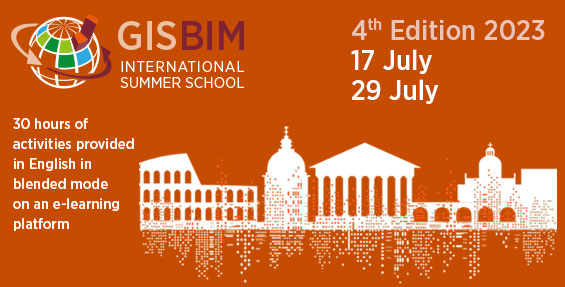The fourth edition of the International Summer School GIS-BIM 2023 offers quality training on two topics of great relevance: the Digital Twin integrated with innovative solutions in the management of the design process of Green Infrastructure.
The complexity of the processes in the construction industry requires an approach aimed at codifying the interactions present in all levels, through integrated solutions that simplify the entire design workflow.
The ISS, starting from the methodological and regulatory framework through the presentation of case studies in various fields (Architecture, Linear Infrastructure, Cultural Heritage) in Europe, Central America and Asia, proposes an innovative training framework.
We are waiting for the confirmation of 10 scholarships for foreign students only.
Lessons will be held in mixed mode: in presence in Rome and online.
How to subscribe click on this link



